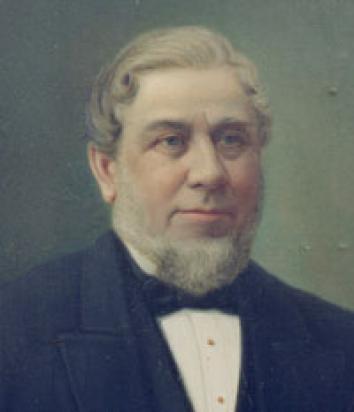Activists in the eastern Ukrainian city of Donetsk, which has been the site of clashes between pro-government and pro-Russian protesters over the past few weeks, have proposed holding a “referendum” on whether their city should secede secede from Ukraine and join the United Kingdom:
“Donetsk is a British city! God Save the Queen,” said the jocular appeal posted on social networks, following the Moscow-backed March 16 referendum on Crimea’s secession from Ukraine to Russia.
It’s a joke, obviously, a mockery of Moscow’s claim that Crimea’s historical links to Russia justify the annexation, but it’s also rooted in Donetsk’s interesting history.
The industrial city of about 950,000 people on the Kalmius river was once known as Hughesovka or Yuzovka, after its Welsh founder John Hughes.
Hughes was an engineer, born in Merthyr Tydfil in 1814 or 1815. After building a successful shipbuilding and ironworks company in Britain, which was known primarily for developoing armored plating for warships, he was invited 1868 by the imperial Russian government to buy a concession in eastern Ukraine to set up a metallurgy and rail-producing factory.
According to a 2010 BBC feature, “Hughes provided a hospital, schools, bath houses, tea rooms, a fire brigade and an Anglican church dedicated to the patron saints St George and St David.”
Hughes died on a business trip to St. Petersburg in 1889, and the plant was taken over by his sons, but nearly all the foreign investors left after the 1917 revolution. During the Soviet period, the city was renamed Stalino, before being given its current name, Donetsk, in the 1960s. It’s still a center of Ukraine’s coal and steel industries, though the region has struggled in recent years.
There’s a statue of Hughes in the city today, and last year the Ukrainian parliament approved plans to honor him with a museum and a commemorative stamp.
In any case, it’s a very clever parody. According to the Moscow Times, “more than 7,000 people had supported the proposal by Sunday, with an online poll showing about 61 percent of respondents favored accession to Britain, and another 16 percent favored ‘broad regional autonomy’ with English as an official language.”
